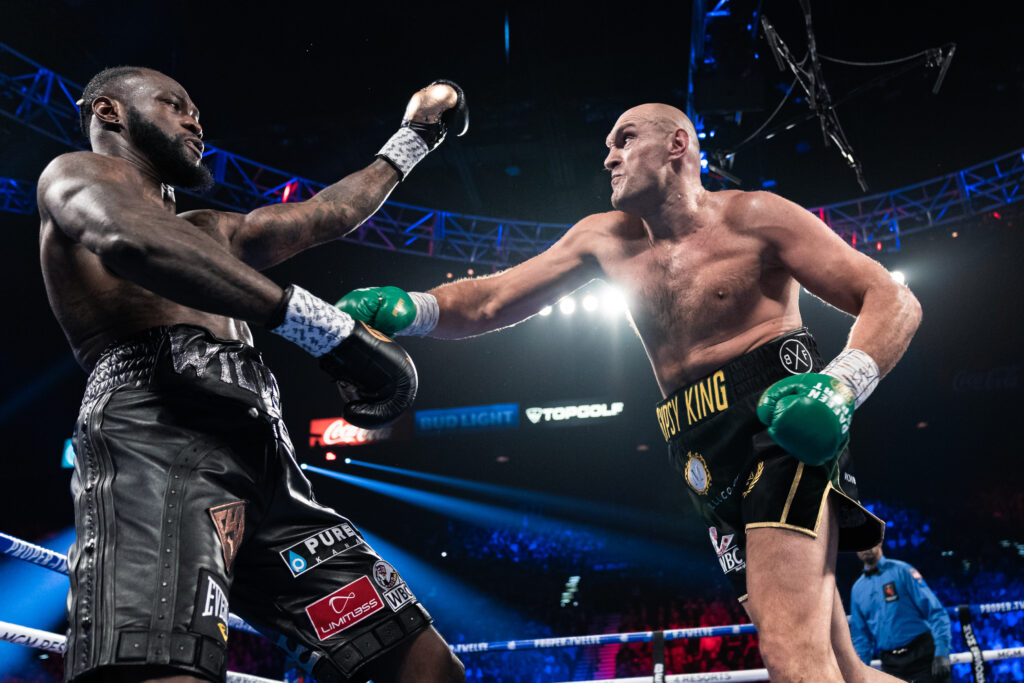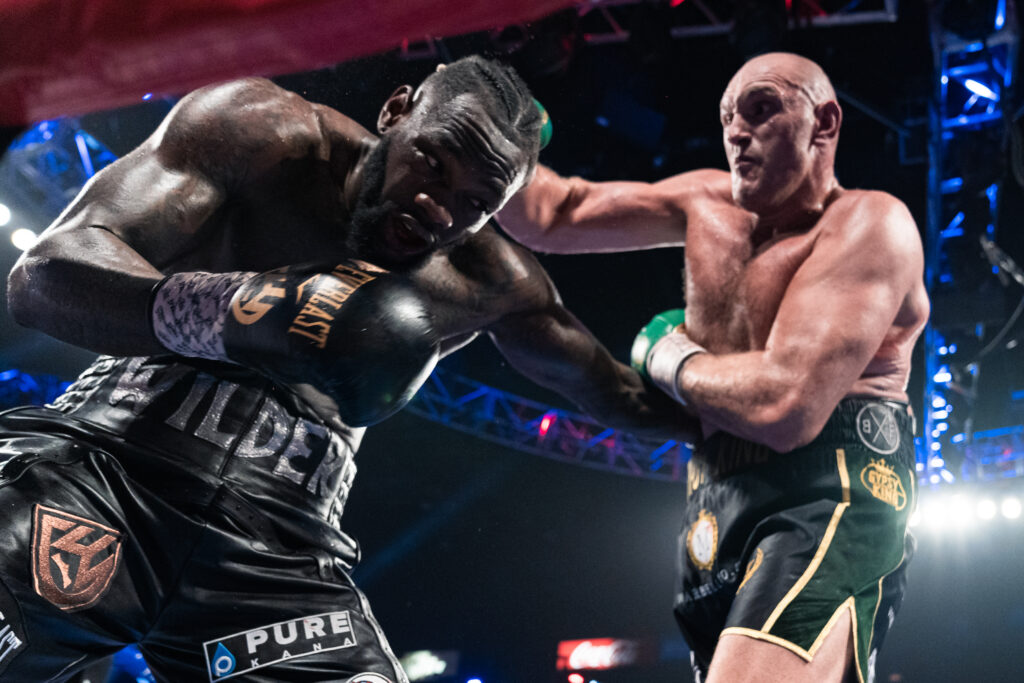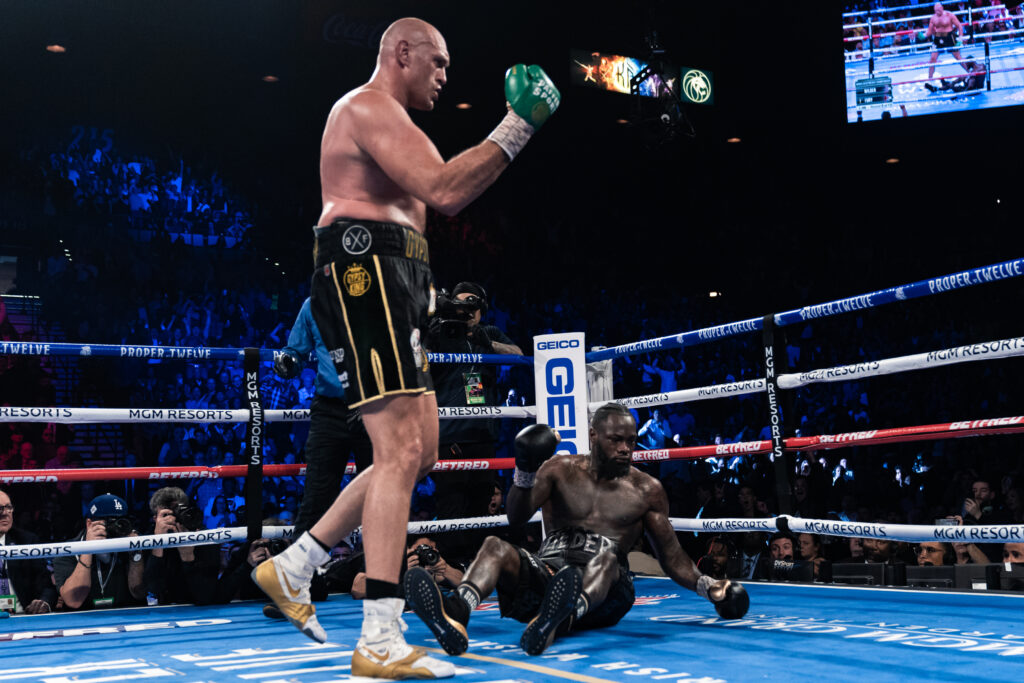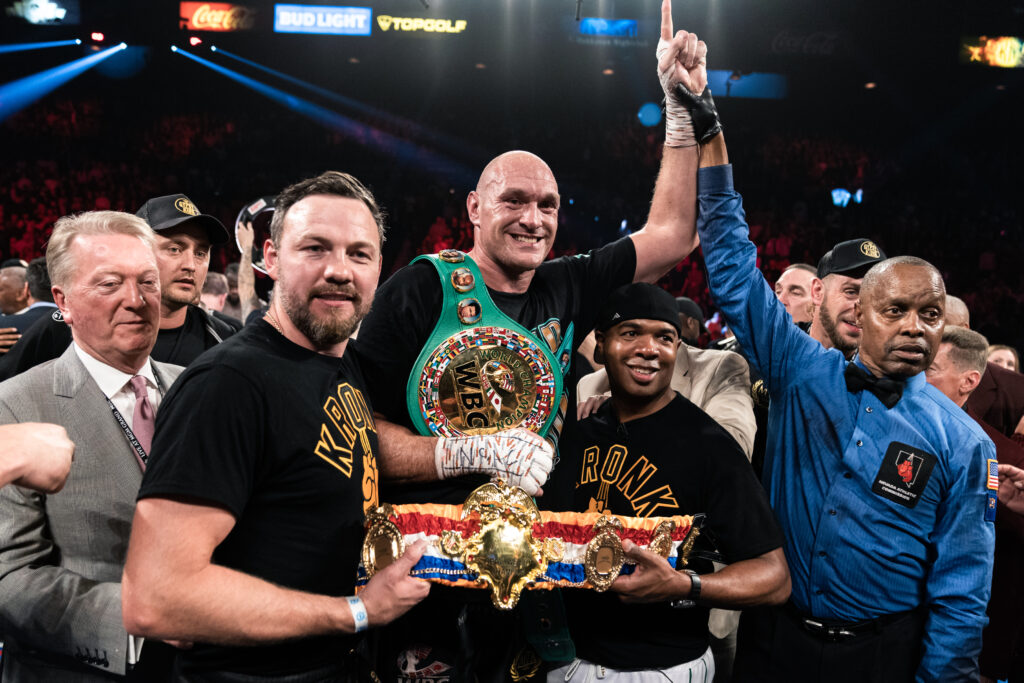IBHOF inductee and boxing betting expert Graham Houston looks ahead to WBC heavyweight champion Tyson Fury’s trilogy fight with Deontay Wilder from the current gambling perspective.
The Covid-19 pandemic has KO’d a number of big fight dates. But things look hopeful for Tyson Fury and Deontay Wilder to meet for the third time before the end of the year. Wilder wants the fight and Fury is contractually bound to accommodate him. A provisional date of December 19 has been floated.
The heavyweight fight everyone wants to see is Fury against Anthony Joshua. First, however, Fury needs to get the Wilder fight out of the way
Fury opened about as a slight favourite at a little over 2-1 on. Now we are seeing Fury nudging closer to 4-1 on. Sporting types are putting their money on Fury even though the Wilder fight does not have a date or venue. If the fight does not happen in 2020, all bets will be voided.
Yet players are willing to have funds tied up for several months even while knowing that the fight might not happen this year. They want to get their money down on Fury. Are they right to be feeling this confident? Let’s get into it, starting with a look at the first two meetings between Fury and Wilder.
In the first fight, the 12-round draw, Fury was dropped twice but still seemed to have done enough to win. In the last round, Fury not only picked himself up from what looked like a count-out type of knockdown, he actually finished the stronger man, backing up Wilder for the remainder of the round.
The rematch was, simply put, a one-sided beatdown. Fury took the fight to Wilder and hurt and hammered him. Wilder showed real guts to last as long as he did. I thought the fight could have been stopped in the fifth round and probably should have been stopped in the sixth. But Wilder hung in there until the seventh, when his corner threw in the towel.

Photo: Ryan Hafey/Premier Boxing Champions.
That was the sort of demoralising defeat, with heavy punishment suffered, that can take a lot out of a fighter.
Wilder is blaming the defeat on his Marvel-comics-like walk-in outfit weighing him down and weakening his legs. But a fighter has to rationalise a loss. Wilder showed a huge heart but, frankly, nothing else. There didn’t even seem to be that much steam behind his vaunted right hand.

Photo: Ryan Hafey/Premier Boxing Champions.
And in the first fight, Wilder hit Fury with his best shot and, while he had him down, he couldn’t take him out cleanly.
Fury is not only much the bigger man and the superior technician, he has demonstrated that he can hurt Wilder and knock him down.
The only way Wilder can win the rematch, logically, is by hitting Fury on the chin with a big right hand and blasting him out of the fight. But that didn’t work in the first two meetings. Fury, meanwhile, has two ways to win this trilogy fight. He could once again take the fight to Wilder and push him back. Or, Fury could revert to the crafty, moving and boxing style of the first contest.
Unfortunately for Wilder, he won’t know which version of Fury he will be meeting until the opening bell rings.
And will Wilder be quite the same after such a crushing and conclusive setback as the one he suffered last February?

Photo: Ryan Hafey/Premier Boxing Champions.
Ring history shows us that fighters can come back from stoppage defeats and turn the tables in a return bout. Joe Louis was heavily punished in a KO defeat against Max Schmeling but when they met in the rematch the Brown Bomber was more mature, and an improved fighter, whereas Schmeling had declined as a boxer. And the first Louis vs Schmeling fight wasn’t a walk in the park for Max; Louis got in his licks. (Schmeling also landed an after-the-bell right hand, which didn’t help Louis.)
Floyd Patterson suffered seven knockdowns in the third round against Ingemar Johansson, but, really, Floyd never got over the first right hand. Patterson was the faster, better fighter and he was deadly determined for the rematch.
Lennox Lewis reversed inside-schedule defeats against Oliver McCall and Hasim Rahman. However, McCall was in emotional turmoil when he met Lewis in the return fight. And Lewis originally took Rahman too lightly. Filming a cameo role in the Ocean’s Eleven remake was a distraction. We saw the gulf in class when a fully focused Lewis blasted out Rahman in the rematch.
In Fury vs Wilder III, we have the evidence of the first two fights to guide us. Fury almost won the first fight by boxing and moving — probably did win even though he had to settle for a draw. The rematch was a massacre.
Of course, Wilder can punch. But he hasn’t always blown away opponents the first time he’s hit them squarely with the right hand. Artur Szpilka, not considered durable, went into the ninth round against Wilder. So did Eric Molina, who subsequently lost in three rounds against Anthony Joshua. Chris Arreola stayed in there for eight rounds and Johann Duhaupas lasted into the 11th round. Even if Wilder can produce a blockbuster of a right hand, it might not be enough. It wasn’t enough in the first meeting.
The sense one has is that Fury faced the very best of Wilder in their initial encounter. Fury knows that if he gets hit and dropped he can get up to prevail. Yes, Wilder has his back to the wall and this could make him dangerous, but Fury has a refuse-to-lose mindset.

training team Andy Lee (left) and SugarHill Steward (right).
Photo: Ryan Hafey/Premier Boxing Champions.
Whether he uses the boxing and moving style of the first meeting or goes forward as he did in the rematch, this is Fury’s fight to lose.
If Wilder wins it will be one of the great performances in heavyweight history when you consider the drubbing he took in February. It isn’t very likely, though.
Unless Fury finds a way to blow it, he really should be able to go 2-0-1 against Wilder. Boxing bettors are hoping the fight takes place before this troubled year draws to a close.
Main photo and all images: Ryan Hafey/Premier Boxing Champions.